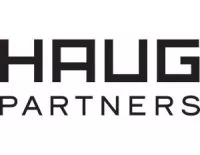The Federal Circuit held that Merck's offer for sale more than one year prior to the patent's filing date was sufficiently definite to constitute an on-sale bar against U.S. Patent No. 6,441,168, which claimed a crystalline calcium salt of a tetrahydrofolic acid ("MTHF"). This decision reversed the District of Delaware's ruling that claim 4 was not invalid under the on-sale bar. A Merck employee sent a fax to Weider Nutrition International, Inc. that stated, in relevant part, "we would like to handle your purchase of [MTHF] very simpl[y]. Therefore please send the order to my attention and I will arrange everything. In addition we need the exact delivery address/person." The law of contracts governs the question of whether an invention is the subject of a commercial offer for sale. An offer rises to the level of a commercial offer for sale when the other party could make the offer into a binding contract by simple acceptance. Even though the sale was never consummated, the Federal Circuit found that the offer triggered the on-sale bar because it was sufficiently definite to bind the parties in the event of acceptance. The Federal Circuit did not accept Merck's argument that the offer was inoperable because certain key terms were not included in the offer. The Federal Circuit also did not credit the Merck employee's testimony that he did not intend for the fax to be an offer, because that testimony directly contradicted the documentary evidence.
The content of this article is intended to provide a general guide to the subject matter. Specialist advice should be sought about your specific circumstances.



